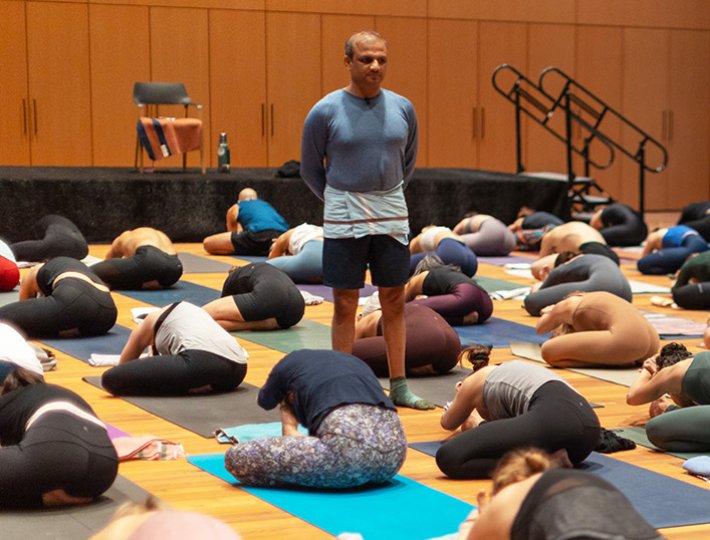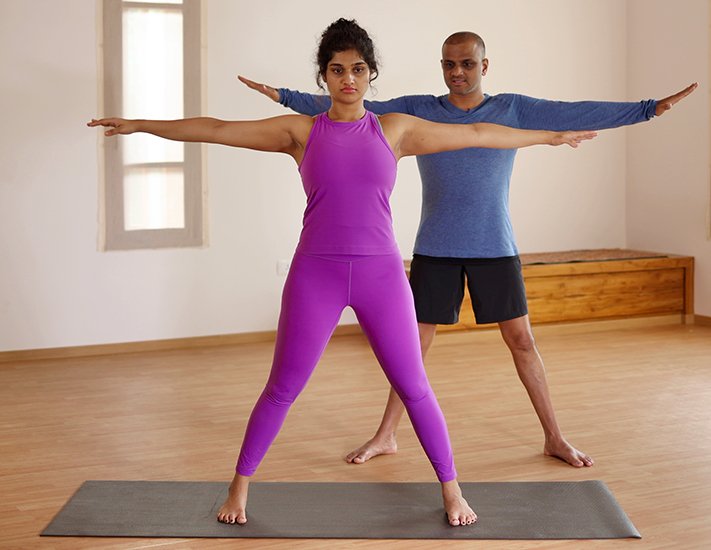Dear John,
My entire life—when choosing a college, starting a career, deciding to get married and have children, etc.—I’ve found it hard not to compare myself to everyone else. But as I get older, I am seeing the timelines and expectations for what life should look like get less and less clear. Some of my friends are wildly successful, some are having babies, others are traveling the world. I find myself out of sorts without an obvious next step. How do I figure out what I really want from my life?
Thank you,
Nothing Compared To
Dear Nothing Compared To,
Thank you for writing in. At times we all get caught in the trap of comparing ourselves to our peers. We tend to think that our accomplishments and our life stage should be on par with or better than theirs. But it’s not only OK to be exactly where you are; we can transform ourselves much more efficiently if we operate from a place of acceptance.
With that in mind, your more salient question concentrates on how to identify what you want from life, so I want to give you a contemplative practice for this goal. You will create a vision across each of the different yet connected areas of your life.
A few areas to consider are your physical health, emotional and mental health, spiritual well-being, and sense of meaning and life purpose. There are undoubtedly other categories that you can think of or subcategories of these. However, I recommend keeping it simple at first. You can always repeat the exercise and further elaborate your meditation to include a broader or more specific focus.
The entry point into a contemplative practice is to clear out a physical, mental, and emotional “space” so that you can bring your entire being into the meditation without having to work extra hard to ward off any distractions.
When you have your space established, read through the instructions below in full so you understand the flow of it. Then come back to the beginning to initiate the practice.
1. Take a comfortable seat or lie down on the floor. When you feel settled, begin a practice of relaxed breathing. It may be beneficial to do a few rounds of a breath-counting practice to center more fully into the breath. A simple way to do this is to place one hand on your belly and one hand on your heart. Do your best to focus on delivering the breath into your lower hand and expanding the belly for a count of three to five or more, whatever feels most comfortable for you. Exhale for twice as long as the inhale and completely empty the breath from the belly, lungs, and chest.
When you feel that you have established a state of relaxation, let your breath return to its more natural cadence.
Related: I Don’t Have a Best Friend. Am I Normal?
2. Since this meditation intends to unearth your true desires for your life path, I invite you to place your hands onto your heart, which is a traditional place of feeling and wisdom. Next, initiate a dialogue with your heart by asking yourself what you need most in your life right now, and in the future, in the following areas:
- physical health
- mental and emotional health
- career/vocation
- relationships (family, friends, romantic)
- existential and spiritual well-being (life meaning, purpose, higher power, and ethical and moral direction)
During your meditation, take pause and spend an intuitive amount of time in each area. You will likely know when the process is complete for each domain through a felt, intuitive sense. If your meditation time is limited, you can focus your practice on one area at a time and complete additional meditations over several days.
3. As you complete your meditation session, consider taking a few conscious breaths with your hands on your heart to practice gratitude. Offer this gratitude for all of the wisdom and discoveries you made during the practice.
4. Lastly, when you complete your meditation, it will be advantageous to record your reflections in a journal so you do not forget what you learned.
You can come back to this practice as many times as needed to feel complete in the process and periodically to check in on your values to determine if you are in fact living by them.
I wish you the best with this practice and on your journey!
Warmly,
John











Comments (0)